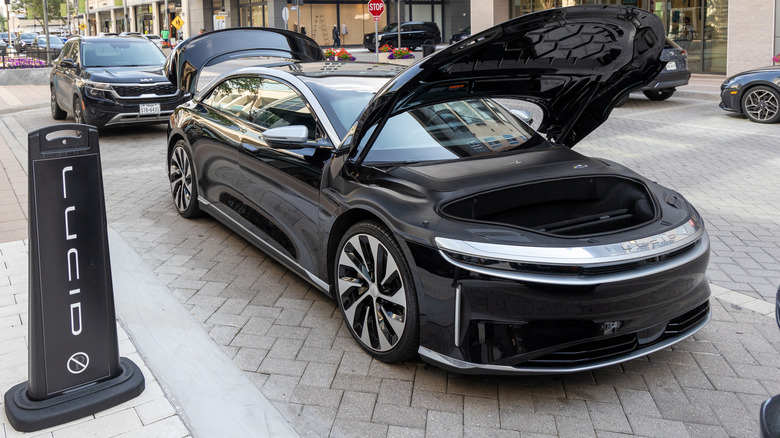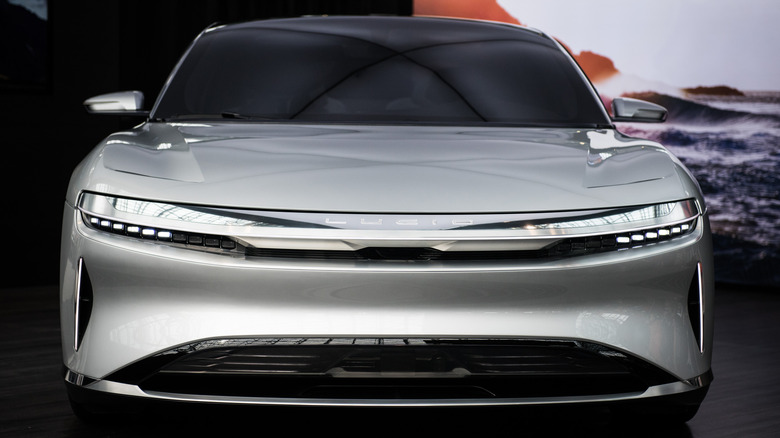Lucid Motors Finally Backs Tesla's NACS Charging Plug For EVs
In a move the company says will bring "greater convenience" to its customers, Lucid Motors is adopting the North American Charging Standard (NACS) for its electric vehicles. Up until now, the luxury EVs made by Lucid Motors — like the Lucid Air Grand Touring Performance — have been built with Combined Charging System (CCS) connectors for electric charging. Starting in 2025, electric cars made by Lucid will be manufactured with the NACS plug. Also beginning in 2025, owners of existing Lucid vehicles equipped with CCS will be able to use adapters that allow for charging in the Tesla Supercharger network, which utilizes NACS.
By switching to NACS, Lucid owners will have access to over 15,000 Tesla Superchargers in North America, making it easier to find a charging station for their EV that's nearby. That accessibility is at the heart of Lucid's decision — even if it may come at the expense of efficiency. "Adopting NACS is an important next step to providing our customers with expanded access to reliable and convenient charging solutions for their Lucid vehicles," Peter Rawlinson, Lucid Motors CEO and CTO, said in a statement announcing the change. Notably, Rawlinson had seemed reluctant to make the change as recently as this summer, citing that NACS wasn't efficient enough for fast charging vehicles with higher-voltage batteries (like the Lucid Air).
Lucid's change is another notch in Tesla's belt
With Lucid Motors adopting NACS, the charging standard becomes that much closer to becoming the de facto EV connector for North America. Earlier this year, SAE International — the consortium of engineers that names standards in aerospace, defense, medical, and automotive industries — announced its support for NACS over CCS as the standard for EV charging. Major auto companies like Ford, GM, and Subaru have also pledged to adopt the plug. As more and more vehicles rely on NACS, it makes it more cost-efficient to build more charging stations across the country. It also makes it a more reliable standard that's less likely to die out, which could eventually happen to CCS as NACS expands.
This is all great news for Tesla, which originally developed NACS for its own EVs, claiming that its simple design makes it an optimal charging plug. Making the connector open source for all vehicles seems to be paying off as a shrewd business move, considering even Tesla's fiercest competitors — such as Lucid Motors — are now adopting its native plug. Lucid Motors isn't painting the change as a win for Tesla, however, but instead as a win for the EV industry as a whole. "We believe that a unified charging standard," stated Rawlinson, "backed by the nationwide rollout of future-ready higher-voltage charging stations, will be a critical step in empowering American consumers to adopt electric vehicles."

